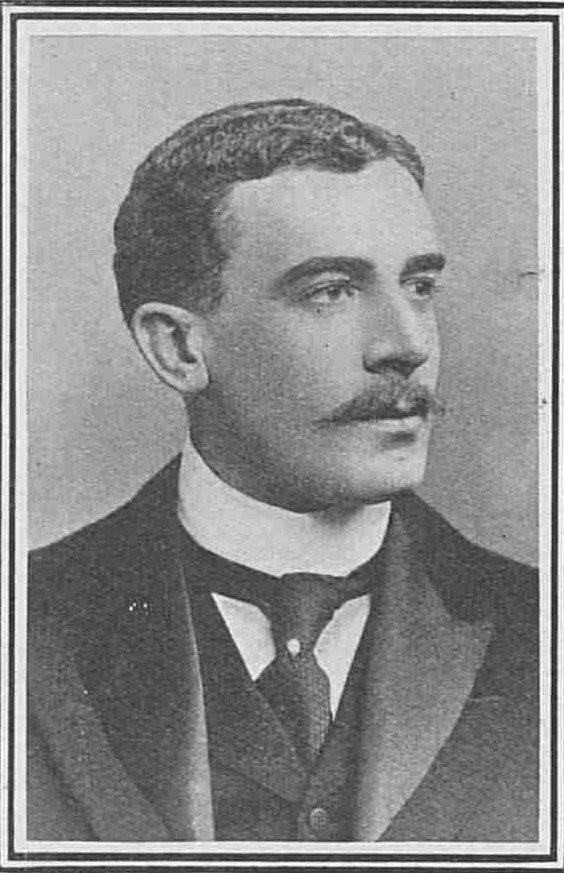“Interview with a Crowborough Man.”
In a interview with a “Courier” reporter, Mr David Buss related how he entered the army in 1895, and was for twelve years in the 2nd Battalion King’s Royal Rifles. He was in South Africa before hostilities broke out and first saw fire on October 15 1899. Incidentally there were three brothers serving during the South African War.

Mr David Buss a member of the King’s Royal Rifles during the South African War.
For 118 days the garrison some 10,000 strong, under Sir George White was besieged in Ladysmith. There was also a big civilian population to feed, and horse and mule flesh for the greater part of the period formed a main item in the diet.
Tea leaves and coffee grounds also had their value as “articles” of food, consumable liquids of all kinds were also exceedingly scarce.
“And may I say,” observed Mr Buss at this stage, thirst is worse than starvation, any day!”
Mr Buss kept a diary of the siege, and interesting and revealing extract is given as follows:-
14 lbs oatmeal…………………………………………60/-
Condensed Milk per tin………………………….10/-
1 lb coffee………………………………………………..17/-
Eggs per Dozen………………………………………..48/-
Fowls Each……………………………………………….18/6
1 Doz Tomatoes ……………………………………….18/-
1 Doz Potatoes ………………………………………….19/-
1 Bottle Jam……………………………………………….31/-
1 lb Marmalade…………………………………………31/-
1 Doz matches……………………………………………13/-
1 Pk Cigarettes……………………………………………25/-
50 Cigars………………………………………………………185/-
1/4 lb cake tobacco………………………………………45/-
1/4 lb sailors tobacco…………………………………..43/-
1/4 lb Capstan Naval cut………………………………60/-
(Typical Infantry private’s pay 1/- a day)
“Articles in everyday use such as rice, starch, curry powders etc had vanished long ago. Violet powder was impounded and turned into mysterious blancmanges. Clothing also run short, especially for the feet and men’s stocks were very scarce.

Trenches around Ladysmith 1899
When a live shell was fired in Ladysmith in honour of the Prince of Wales birthday the whole population were in a ferment of excitement, they had thought it to mark the arrival of relief.
With Mr Buss in Ladysmith was one of his brothers and their numbers were respectively 9196 and 9238. Mr Buss’s brother was servant to Captain Northley now residing at Epsom.
During his Army service Mr Buss was also in India, and was at Delhi when Kind Edward VII was proclaimed and later attended the coronation ceremony.
“Rode in the King’s carriage”
Mr Buss told the reporter that he was “a 1914 man” in the Great War (Interestingly his Service record states that he didn’t arrive in France until July 1915) and was wounded in France in 1916 (GSW Left Arm) and “gassed” in 1917. When in the King George V ward at Charing Cross Hospital he once had the privilege, as Mr Buss put it, of “riding in the King’s carriage.”
He was then transferred to a Bristol Hospital, where King George spoke to him when visiting.

The Military service of David Buss later of the King’s Royal Rifles 1895-1907
In the later stages of the war he was attached to the Carabineers in Italy and was there when Armistice was signed.
Here, therefore, is a veteran who has been through two major wars. Today Mr Buss is seeking work, and his opinion was given to our representative in these words:
“In times of war it is Tommy this and Tommy that; but afterwards you just aren’t wanted”
However Mr Buss is by no means downhearted, and he meanwhile delights to get hold of an interested listener for his many army reminiscences.
Born is 1875, Mr Buss is a proud Surrey Man.
The Surrey Courier 30th December 1938.




